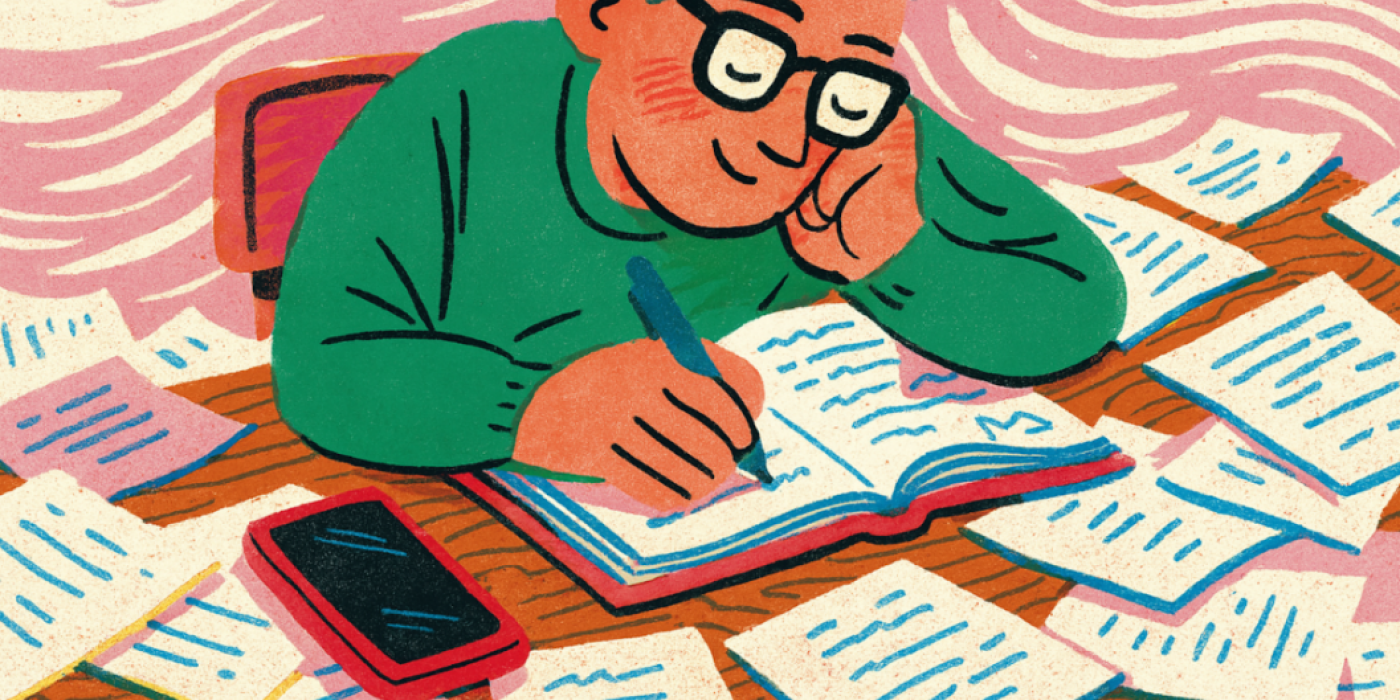
You've probably noticed that you pick up your phone without a clear intention. While unlocking it, you realize that the action you're performing is uncontrolled and unguided, but you don't put the phone down. Why? At least one of the notifications will be interesting, every app will have some novelty, we just can't stop ourselves. As soon as we reach for the phone, our attention is already elsewhere.
This is not a rare occurrence. Andrews and colleagues' (2015) research shows an example of a user in which 55% of all phone checks take less than 30 seconds. We call these microchecks. They are quick, often unconscious glances at the screen, without a real reason or purpose - refreshing email without a real reason, "just a quick look to see if there's anything new on Instagram", "just checking the market status"...
Microchecks often occur in response to unpleasant feelings — boredom, waiting, frustration, a sense of failure. And not because it actually calms us down – to succeed, we would have to face them first. We do this because we can immediately shift our attention away from that unpleasant moment: we refresh the screen like a slot machine, hoping for something intangible that will change our mood.
Even a small action can have concrete consequences for us. If, like the person in the study, we check our phone frequently*, we are less present, less successful at work, and less satisfied with it.
*You can check the number of your daily unlocks in your smartphone settings.
I work all day, I check my emails, I answer calls, but I don't get anything done
Micro-checking disrupts the so-called "deep flow" — a state in which we are completely absorbed in the task, creative, precise, and time simply does not exist for us.
According to a study by Mark and colleagues (2008), it takes an average of 23 minutes and 15 seconds to return to the same level of concentration as before after each distraction. If we check our phone three times an hour (which is often the case for myself and others), we never enter a state of deep focus.
Consequences can go beyond low focus and poor work results. A study by Tng and Yang in 2024 with 364 students showed that it is not necessarily the total time spent using a phone that affects mental health - in this sample, it was the frequency of checking.
A higher number of checks was associated with a higher level of depression, anxiety, and stress — regardless of gender, age, or personality traits.
The nature of a smartphone is that it creates habits of automatic checking, affects our focus and mood, and we never get tired of it. When we become aware of the effects of using smartphones on our focus and well-being, we would prefer to replace them with a "landline" right away. However, this would mean giving up all the benefits we get from a smartphone.
How can I change something?
To use a smartphone without unwanted consequences, it is essential to know how to put it down. This won't happen on its own or just by wishing it. The initiative to take a break from the phone and our assistant can be Humanodoro, a product of a Slovenian company that we have also tested ourselves.

Humanodoro is a minimalist pad and application with a clear mission: to encourage us to put our phones down consciously. The developers describe it as:
"A clear visual reminder to put your phone away. When you place it on the pad and set the timer, you commit to a session without interruptions. The app tracks the time your phone is idle and helps you gradually improve your focus."
By tracking the time the phone rests on the pad, you earn points for each minute.You can invite friends and family members to participate, and compete with them. You can compete with yourself - can you live a few more minutes today without unlocking or moving your phone?
When we tested Humanodoro, we committed to the session and noticed that we were less likely to give in to the temptation to "just quickly check if tomatoes are really a fruit" or see "if someone has already answered us." Such things can wait.
With regular use of Humanodoro, we have noticed greater focus, more creativity, and less stress. Phone has once again transformed from a distraction into a tool.
If you want more presence, more focus, and more control over your time, start with something simple — start putting your phone away. Humanodoro can be a valuable ally in this. It doesn't push, it doesn't persuade – it just helps you choose where to direct your attention again.
Sources
- Andrews, S., Ellis, D. A., Shaw, H., & Piwek, L. (2015). Beyond self-report: Tools to compare estimated and real-world smartphone use. PloS one, 10(10), e0139004.
- Ronkainen, T. (2023). Principles of increasing user engagement and habit formation in social network platforms: An exploratory literature review.
- Mark, G., Gudith, D., & Klocke, U. (2008). The cost of interrupted work: More speed and stress. Proceedings of the SIGCHI Conference on Human Factors in Computing Systems, 107–110. https://doi.org/10.1145/1357054.1357072
- Meyer, D. E., Evans, J. E., & Rubinstein, J. S. (2001). Executive control of cognitive processes in task switching. Journal of Experimental Psychology: Human Perception and Performance, 27(4), 763–797. https://doi.org/10.1037/0096-1523.27.4.763
- Tng, G. Y., & Yang, H. (2024). Nuanced relationships between indices of smartphone use and psychological distress: distinguishing problematic smartphone use, phone checking, and screen time. Behaviour & Information Technology, 43(5), 956-969.
